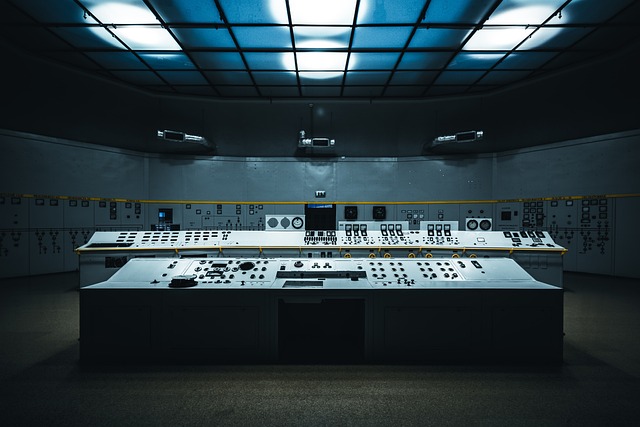# Exploring the Transformative Power of AI Technology in Everyday Life and Future Innovations
Artificial Intelligence (AI) has transcended its initial perception as a futuristic concept, embedding itself into the fabric of daily life. From simple applications like virtual assistants to complex systems driving autonomous vehicles, AI technology is reshaping how we interact with the world. This article delves into the transformative power of AI, examining its current applications, the implications for our future, and the innovations on the horizon.
## The Current Landscape of AI in Daily Life
In recent years, AI has made significant inroads into various sectors, enhancing efficiency and user experience. For instance, smart home devices powered by AI algorithms enable homeowners to control lighting, security, and climate with ease. These devices learn user preferences over time, creating a seamless and personalized environment. This level of convenience not only saves time but also optimizes energy consumption, contributing to more sustainable living.
Moreover, the healthcare sector has witnessed a revolution due to AI technology. Advanced algorithms analyze vast amounts of medical data, facilitating early diagnosis and personalized treatment plans. Machine learning models can predict patient outcomes, allowing healthcare providers to make informed decisions swiftly. As a result, AI is not merely a tool for efficiency; it is a critical partner in enhancing patient care and outcomes.
Education is another area where AI is making a substantial impact. Personalized learning platforms leverage AI to adapt educational content to individual student needs, promoting engagement and improving learning outcomes. By analyzing student performance and preferences, these platforms can recommend resources and tailor lessons, ensuring that each learner receives the support they require. This shift towards personalized education has the potential to transform traditional teaching methodologies, making learning more accessible and effective.
## The Implications of AI for the Future
As AI continues to evolve, its implications extend far beyond mere convenience. Economic models are being reshaped, with automation threatening to displace certain jobs while simultaneously creating new opportunities in emerging fields. The World Economic Forum predicts that AI could displace 85 million jobs by 2025, but it could also create 97 million new roles that require different skill sets. This duality presents a challenge for workforce development, necessitating a focus on retraining and upskilling to prepare individuals for the jobs of tomorrow.
In the realm of ethics, the rise of AI brings forth critical discussions about privacy, bias, and accountability. As AI systems become more integrated into decision-making processes, the potential for algorithmic bias raises concerns about fairness and equity. Ensuring that AI is developed and deployed responsibly is paramount. Organizations must prioritize transparency and inclusivity in AI development to mitigate risks and foster public trust. This involves not only adhering to ethical guidelines but also engaging diverse stakeholders in the design and implementation of AI technologies.
Furthermore, the intersection of AI and sustainability presents an exciting frontier for innovation. AI has the potential to optimize resource management, reduce waste, and enhance energy efficiency across various industries. For instance, predictive analytics can improve supply chain logistics, minimizing excess inventory and reducing carbon footprints. In agriculture, AI-driven precision farming techniques enable farmers to optimize crop yields while conserving water and reducing pesticide usage. As the world grapples with climate change, leveraging AI for sustainable practices will be crucial for creating a resilient future.
## Innovations on the Horizon
Looking ahead, the future of AI technology is rife with possibilities. One of the most anticipated innovations is the advancement of natural language processing (NLP), which enables machines to understand and respond to human language more effectively. As NLP continues to improve, we can expect more sophisticated virtual assistants and chatbots that provide personalized customer service experiences. This evolution will not only enhance user interactions but also streamline business operations, ultimately driving growth.
Additionally, the integration of AI with other emerging technologies, such as the Internet of Things (IoT) and blockchain, promises to unlock new capabilities. Smart cities, powered by interconnected devices and AI analytics, will facilitate real-time data collection and analysis, leading to more efficient urban planning and resource allocation. Blockchain technology can enhance the security and transparency of AI systems, ensuring that data integrity is maintained while fostering trust among users.
Moreover, advancements in AI-driven robotics are set to revolutionize industries such as manufacturing, logistics, and healthcare. Collaborative robots, or cobots, are designed to work alongside humans, enhancing productivity while ensuring safety. In healthcare, robotic surgical systems are becoming increasingly sophisticated, enabling minimally invasive procedures with enhanced precision. As these technologies mature, the potential for improved efficiency and quality of service across various sectors will be profound.
In conclusion, the transformative power of AI technology is evident in its ability to enhance everyday life and drive future innovations. As AI continues to permeate various aspects of society, its implications for the economy, ethics, and sustainability will require careful consideration and proactive measures. By embracing the potential of AI while addressing the associated challenges, we can harness this powerful technology to create a more efficient, equitable, and sustainable future. The journey ahead is not without obstacles, but with collaborative efforts and a commitment to responsible innovation, the possibilities are limitless.

